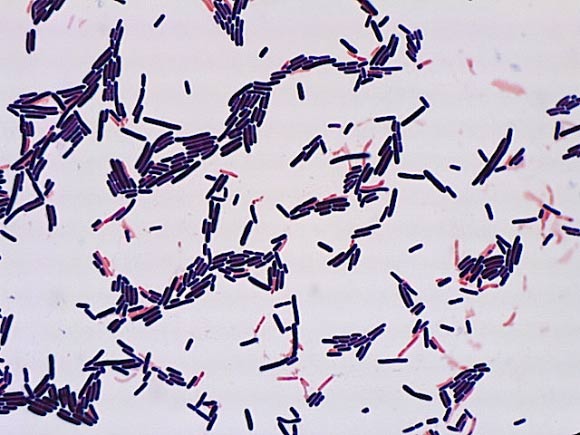An international team of researchers has found that in both mice and humans, a high-salt diet shrinks the population of a type of gut bacteria called Lactobacillus; as a result, Th-17 immune cells grow in number; these immune cells have been linked with high blood pressure, although the exact mechanism of how they contribute to hypertension is not yet known.
Scientists have long known that a high-salt diet can lead to cardiovascular disease.
As sodium accumulates in the bloodstream, the body retains more fluid to dilute the sodium, and the heart and blood vessels have to work harder to pump the extra volume of water. This can stiffen the blood vessels, potentially leading to high blood pressure, heart attack, and stroke.
Recent evidence has also implicated the body’s immune system in some of the effects of a high-salt diet.
MIT Professor Eric Alm, Dr. Dominik Muller of the Max-Delbruck Center for Molecular Medicine, and Dr. Ralf Linker of the Friedrich-Alexander University, and their colleagues have previously shown that salt increases the population of Th-17 cells, which stimulate inflammation and can lead to hypertension.
The researchers have found that excess salt can drive the development of an autoimmune disease that is similar to multiple sclerosis, in mice.
They have also studied interactions of human gut microbes with populations of different types of immune cells, and have found that the balance between pro-inflammatory cells such as Th-17 and anti-inflammatory cells is influenced by the composition of the gut microbiome.
They have also found that probiotics can tip this balance in favor of anti-inflammatory cells.
In the new study, the team attempted to determine how a high-salt diet would affect the microbiome, and whether those changes might be linked to the detrimental health effects of such a diet.
For two weeks, the authors fed mice a diet in which sodium chloride (table salt) made up 4% of what the animals were eating, compared to 0.5% for mice on a normal diet.
They found that this diet led to a drop in the population of Lactobacillus murinus. These mice also had greater populations of Th-17 cells, and their blood pressure went up.
When mice experiencing high blood pressure were given a probiotic containing Lactobacillus murinus, Th-17 populations went down and hypertension was reduced.
In a study of 12 human subjects, the researchers found that adding 6,000 milligrams of sodium chloride per day to the subjects’ diet, for a duration of two weeks, also changed the composition of bacteria in the gut.
Populations of Lactobacillus bacteria went down, and the subjects’ blood pressure went up along with their counts of Th-17 cells.
When subjects were given a commercially available probiotic for a week before going on a high-salt diet, their gut lactobacillus levels and blood pressure remained normal.
“It is still unclear exactly how Th-17 cells contribute to the development of high blood pressure and other ill effects of a high-salt diet,” the scientists said.
“We’re learning that the immune system exerts a lot of control on the body, above and beyond what we generally think of as immunity. The mechanisms by which it exerts that control are still being unraveled,” Professor Alm said.
“We hope that our findings, along with future studies, will help to shed more light on the mechanism by which a high-salt diet influences disease.”
The study is published in the journal Nature.
_____
Nicola Wilck et al. Salt-responsive gut commensal modulates TH17 axis and disease. Nature, published online November 15, 2017; doi: 10.1038/nature24628








